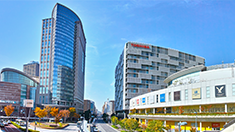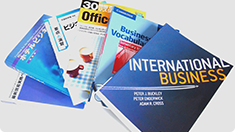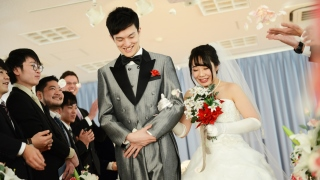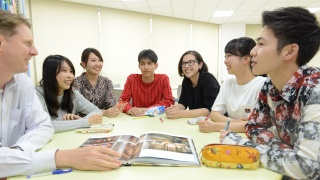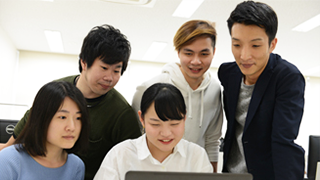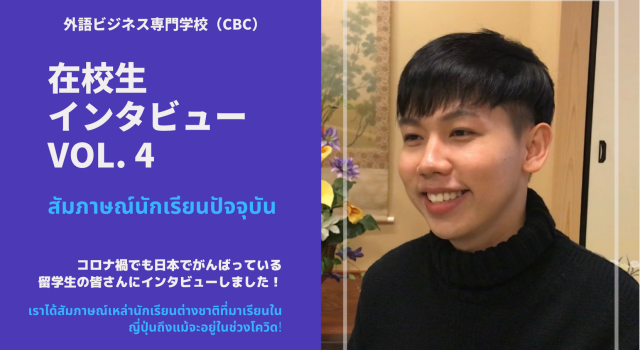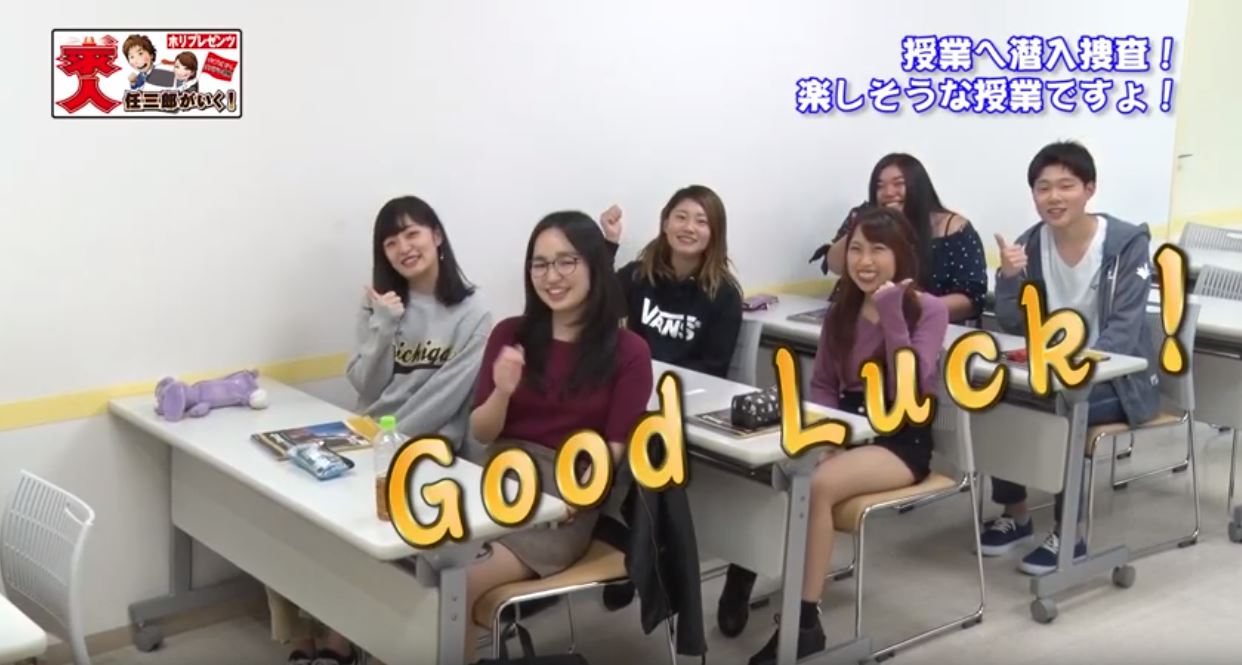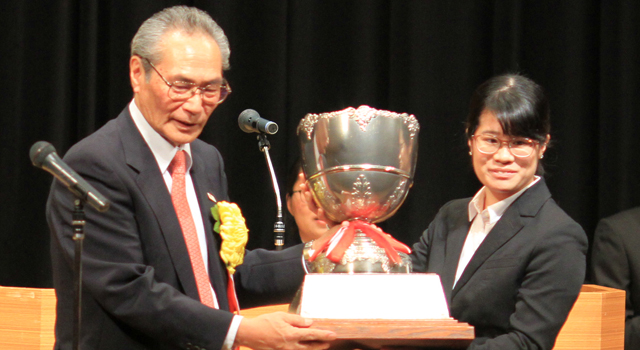Department of Japanese and Advanced Studies in Japanese (each a 1-year course)

From Daily Conversation to going on to Higher Education and finding employment
At CBC, students can learn Japanese for from daily life to going on to higher education and finding employment.
We also have courses according to the level and purpose of the learners.
In addition to the Japanese Language Proficiency Test (JLPT) measures for each level, we aim to cultivate communication skills and acquire practical Japanese ability.
Department of Japanese
At the Department of Japanese, students learn from basic level to advanced level with a well-balanced curriculum in 4 skills (speaking, writing, listening and reading)
Students learn Japanese with a well-balanced curriculum in 4 skills (speaking, writing, listening and reading)
Target level: Beginner to advanced
This is a conversation-based curriculum with a special emphasis on communication skills for beginner learners.
Target level: Beginner
Department of Advanced Studies in Japanese
In this department, CBC also offers special lessons such as elective courses for learners who want to study more advanced Japanese and aim for further education or employment in Japan.
Target level: Intermediate to advanced
» Morning Course of Department of Japanese and Advanced Studies in Japanese Click here for curriculum and main teaching materials
»Afternoon Course Click here for curriculum and main teaching materials, click here
» Application Guidelines here (Resident in Japan)
» Application Guidelines here (Those who come from abroad)
Enrollment Period and Course Duration
 Depatment of Japanese and Advanced Studies in Japanese are each a one-year course. Enrollment period is April and October .
Depatment of Japanese and Advanced Studies in Japanese are each a one-year course. Enrollment period is April and October .
This is a regular course that allows you to obtain a student visa. After a year of learning Japanese at Department of Japanese, a student can be promoted to the Department of Advanced Studies in Japanese if desired. The maximum length of learning Japanese language is for up to 2 years.
Class Level
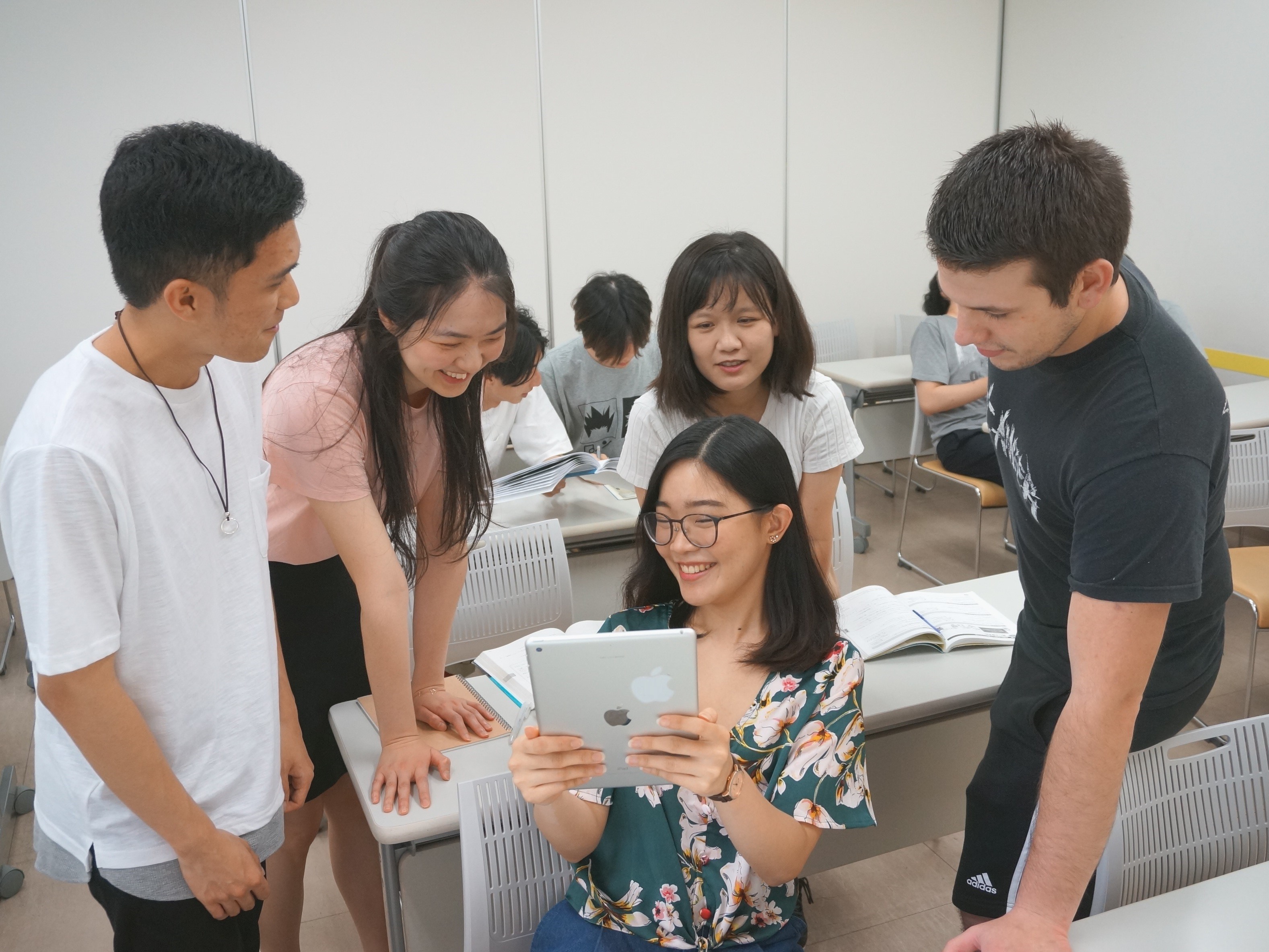 Class levels are divided into beginner to advanced to provide Japanese language education by each student’s proficiency level.
Class levels are divided into beginner to advanced to provide Japanese language education by each student’s proficiency level.
At the beginner level, students learn from simple greetings and the advanced level students learn not only the Japanese Language Proficiency Test N1 level, but also business Japanese conversations that will be useful for employment.
Students can study at the appropriate level. Class level will be decided by the result of the placement test taken before the course starts.
ICT Education Using Digital Teaching Materials
 In class, we are actively conducting ICT education using tablet terminals such as iPads .
In class, we are actively conducting ICT education using tablet terminals such as iPads .
Teachers can instantly present the learning material saved in the digital learning material server to students. It is also possible to wirelessly display on a whiteboard from a projector through AirPlay .
By using audiovisual materials such as images and animation, which are difficult to express with paper materials, students can easily understand Japanese.
Number of Class Hours at Professional Training College (Senmon Gakko) and Free Kanji Lessons
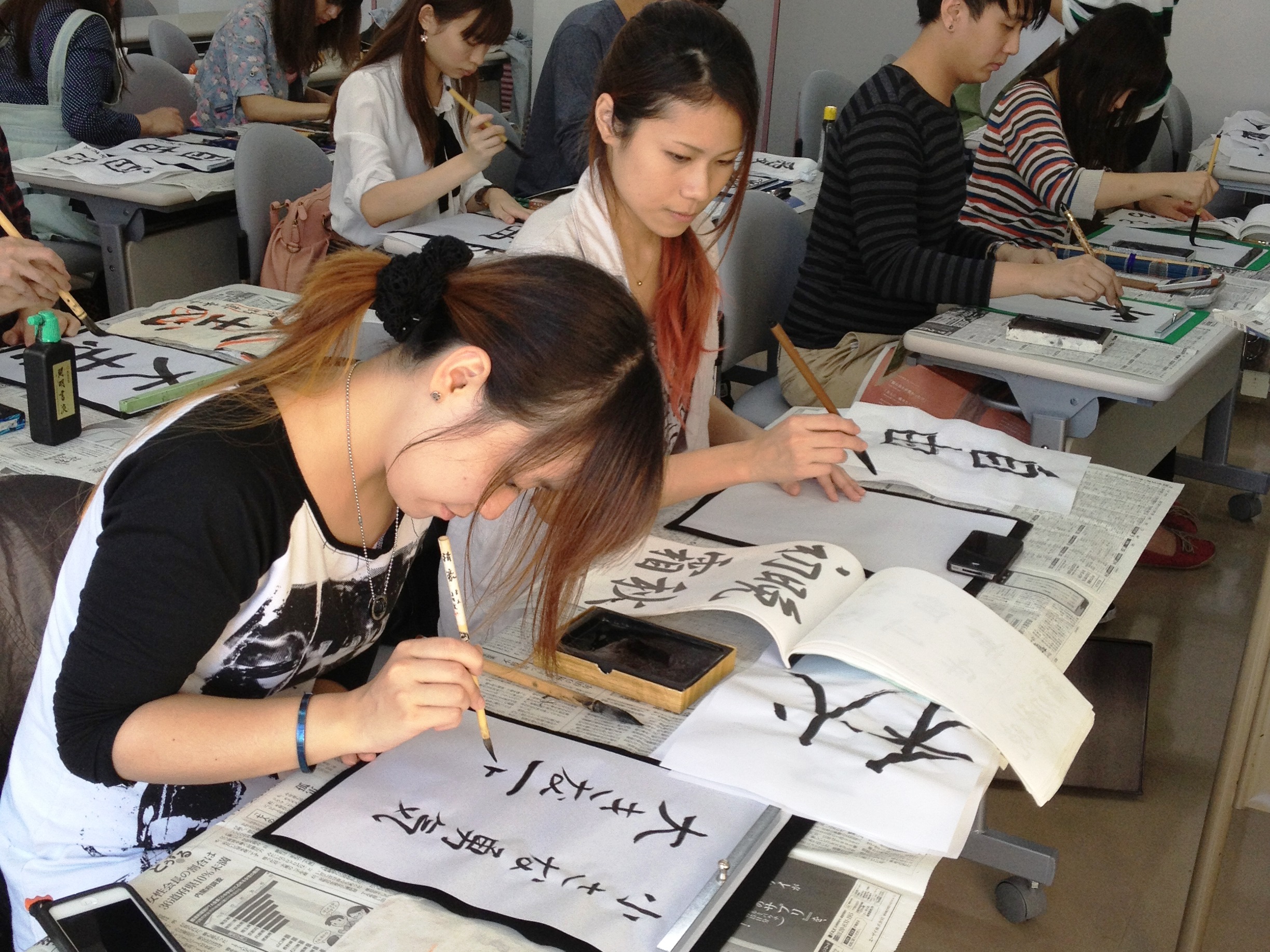 One lesson unit is 50 minutes, and total lesson units per week will be 22 units and per year 900 units. Compared with a Japanese-language school, CBC students can learn Japanese over longer hours. In one year, Japanese-Language Proficiency will be noticeably improved.
One lesson unit is 50 minutes, and total lesson units per week will be 22 units and per year 900 units. Compared with a Japanese-language school, CBC students can learn Japanese over longer hours. In one year, Japanese-Language Proficiency will be noticeably improved.
Students who come from countries that do not use kanji, we offer a kanji lesson per week. It’s free of charge.
Elective Subjects for Needs
CBC offers an elective subjects system to meet student’s needs.
Students can choose elective subjects such as “Japanese-Language Proficiency Test N1 and N2” for employment.
Courses may be available such as “Making Drama in Japanese” or “J-POP Lyrics,” for example.
Those who wish to go on to university can also take the “Examination for Japanese University admission for International Students (EJU).” preparation courses.
*Subjects for EJU are in a different time zone than the regular lessons so that it does not affect the acquisition of Japanese language.
[Examples of Elective Subjects and EJU]
| Elective Subjects for university and graduate school exam | Elective Subjects for working in Japan | Other Subjects |
|---|---|---|
| Examination for Japanese University Admission for International Students | Business Certification Examination | Pronunciation |
| General Subjects, Physics, Chemistry, Mathematics | Keigo (Honorific Speech) | TV Media |
| Essay | Business Japanese | Expression(Writing & Speaking) |
| English | MS WORD in Japanese | J-POP Lyrics |
| Japanese-Language Proficiency Test | Current Topics in Japan | Japanese Culture |
International Exchange with Kawasaki Citizens, High School Students and University Students
Annual School Events
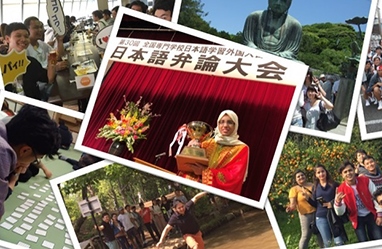 At CBC , students can participate in various Japanese cultural experiences and international exchanges.
At CBC , students can participate in various Japanese cultural experiences and international exchanges.
In spring and autumn, we leave the school and visit theme parks and museums.
In summer, you can carry a mikoshi (portable shrine) at Kawasaki’s largest festival, the Sanno Matsuri.
In addition to exchanges with CBC Japanese students, exchanges with Kawasaki citizens, visits to local elementary schools, and exchanges with high school and university students.
Besides school events, there are many events such as watching sumo, watching kabuki, and international festivals.
Student Voice
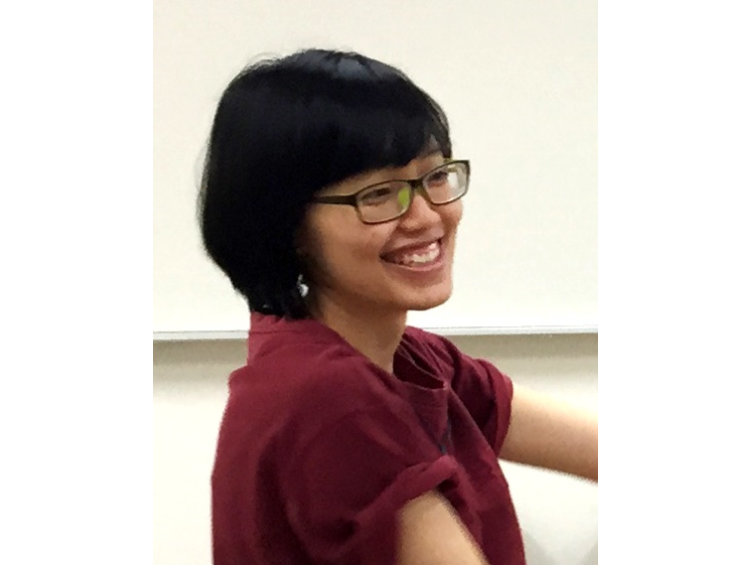 LE HONG MINH
LE HONG MINHUniversity of Social Sciences and Humanities graduation
With variety of subjects, I am able to prepare for EJU and JLPT, get to know more about Japanese cultures and ways of using proper Japanese. It is pleasure for me that the techers at CBC give us initiative lessons and we enjoy studying everyday!
With the various classes and events at CBC, I found that my listening and conversation skills have improved. Also, it was my first time living alone, but after coming to Japan, I got used to cooking and doing housework myself.
Main Textbooks and Study Period
Morning Course of Department of Japanese / Department of Advanced studies in Japanese
-
Class levelAdvanced I / II
-
Period6 months
-
Main text
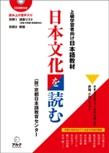 Nihon Bunka wo Yomu – Dissecting the Japanese Culture
Nihon Bunka wo Yomu – Dissecting the Japanese Culture
(Advanced) -
TargetWhile reading texts from various fields such as social critics, literature, and history, you will increase your grammar, vocabulary, and unique Japanese remarks to deepen your understanding of the pulse.
Understand TV news, develop vocabulary and expressiveness, and explain and exchange ideas.
JLPT N1
-
Class levelUpper Intermediate I / II
-
Period6 months
-
Main text
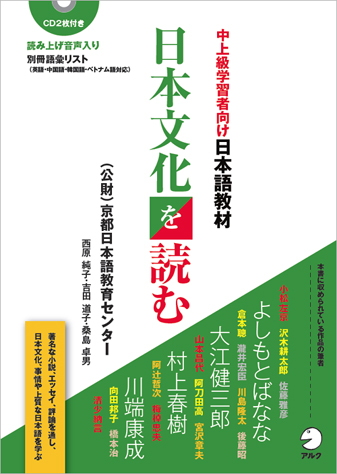 Nihon Bunka wo Yomu – Dissecting the Japanese Culture
Nihon Bunka wo Yomu – Dissecting the Japanese Culture
(upper intermediate) -
TargetReading novels, essays and critiques will give students a better understanding of Japanese culture and situations.
To enhance expressiveness and presentation through text-related activities.
Students also develop the ability to learn news, listen, discuss issues and comment.
Grammar for JLPT N1.
JLPT N2, N1
-
Class levelIntermediate I / II / III
-
Period9 months
-
Main text
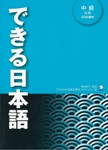 Dekiru Nihongo
Dekiru Nihongo -
TargetStrengthen 4 skills on themes and abstract matters that are difficult at the beginner level.
Students will acquire the ability to speak and write your own thoughts and ideas with a certain length of sentence.
JLPT N3, N2
-
Class levelBeginner II
-
Period3 months
-
Main text
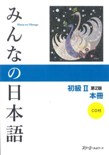 Minna No Nihongo II
Minna No Nihongo II -
TargetLearn basic sentence patterns and improve your Japanese skills so that you do not have difficulty in daily life.
Students will be able to write sentences about your own culture, hobbies and work.
JLPT N4
-
Class levelBeginner I
-
Period3 months
-
Main text
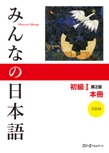 Minna No Nihongo I
Minna No Nihongo I -
TargetLearn to read and write hiragana, katakana, and kanji.
Learn sentence patterns and develop basic Japanese skills.
JLPT N5
» Application Guidelines, click here
Department of Japanese Afternoon Course
-
Class levelBeginner II
-
Period3 months
-
Main text
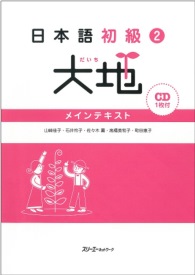 Daichi – Elementary Japanese 2
Daichi – Elementary Japanese 2 -
TargetTo understand scenes and situations and to be able to express it in Japanese.
-
Class levelBeginner I
-
Period3 months
-
Main text
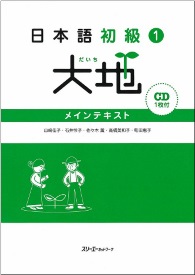 Daichi – Elementary Japanese 1
Daichi – Elementary Japanese 1 -
TargetLearn basic Japanese conversation and acquire the expression ability that can be utilized in daily life.
Supplementary textbooks “Basic Workbook” and “Combined Grammar Listening Elementary” will be used. (Daichi series)
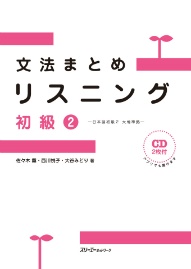
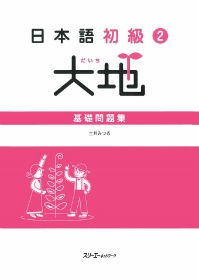
Academic and Career Counseling
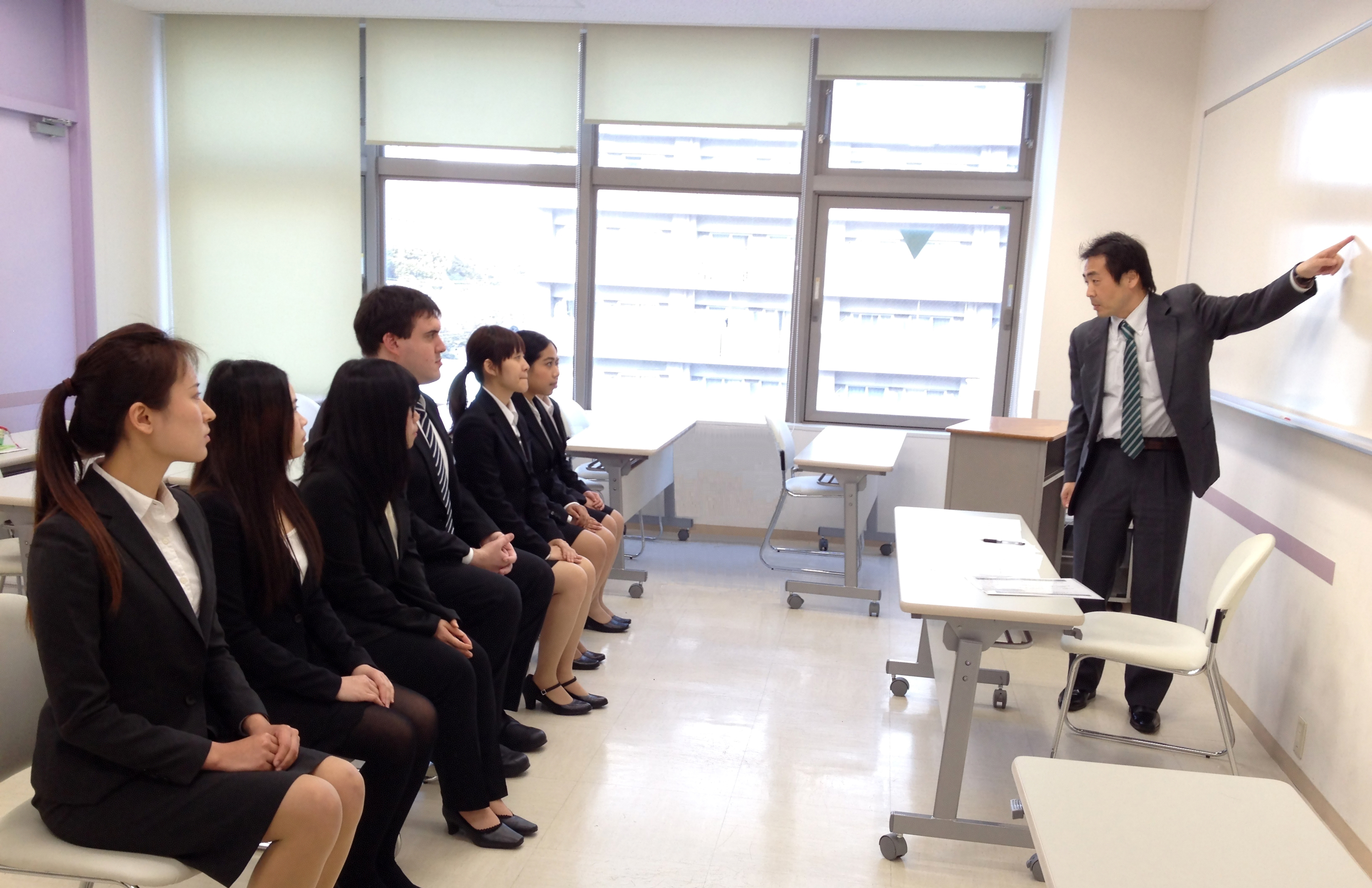 Homeroom teacher in each class and staff work together to provide career guidance.
Homeroom teacher in each class and staff work together to provide career guidance.
For students who want to go on to further study, teachers carefully guide you from filling out the application to interview practice.
Those who wish to go on to graduate school will be taught how to write esssay and make appointments with professors in the elective sybject.
Students who want to find a job will be taught how to find a job, how to write a resume, and practice interviews.
In addition, we hold regulary academic guidance and career guidance.
Student Support
 Staff who speak each language support your daily life.
Staff who speak each language support your daily life.
It is difficult for international students who have not come to Japan to do various procedures.
The staff assist you address registration at the ward office and enrolling for National Health Insurance.
We also support opening an account at Japan Post Bank and purchasing SIM cards.
In case of illness or injury, CBC staff guide you to the nearest hospital or clinic.
Admission Procedure
Application procedures are accepted through the inquiry form, email, and phone (044-244-3200).
» Application Guidelines here (residents in Japan)
» Application Guidelines here (those who come from abroad)
If you do not have a visa, you need to apply for a student visa.
≫Click here to download application documents


